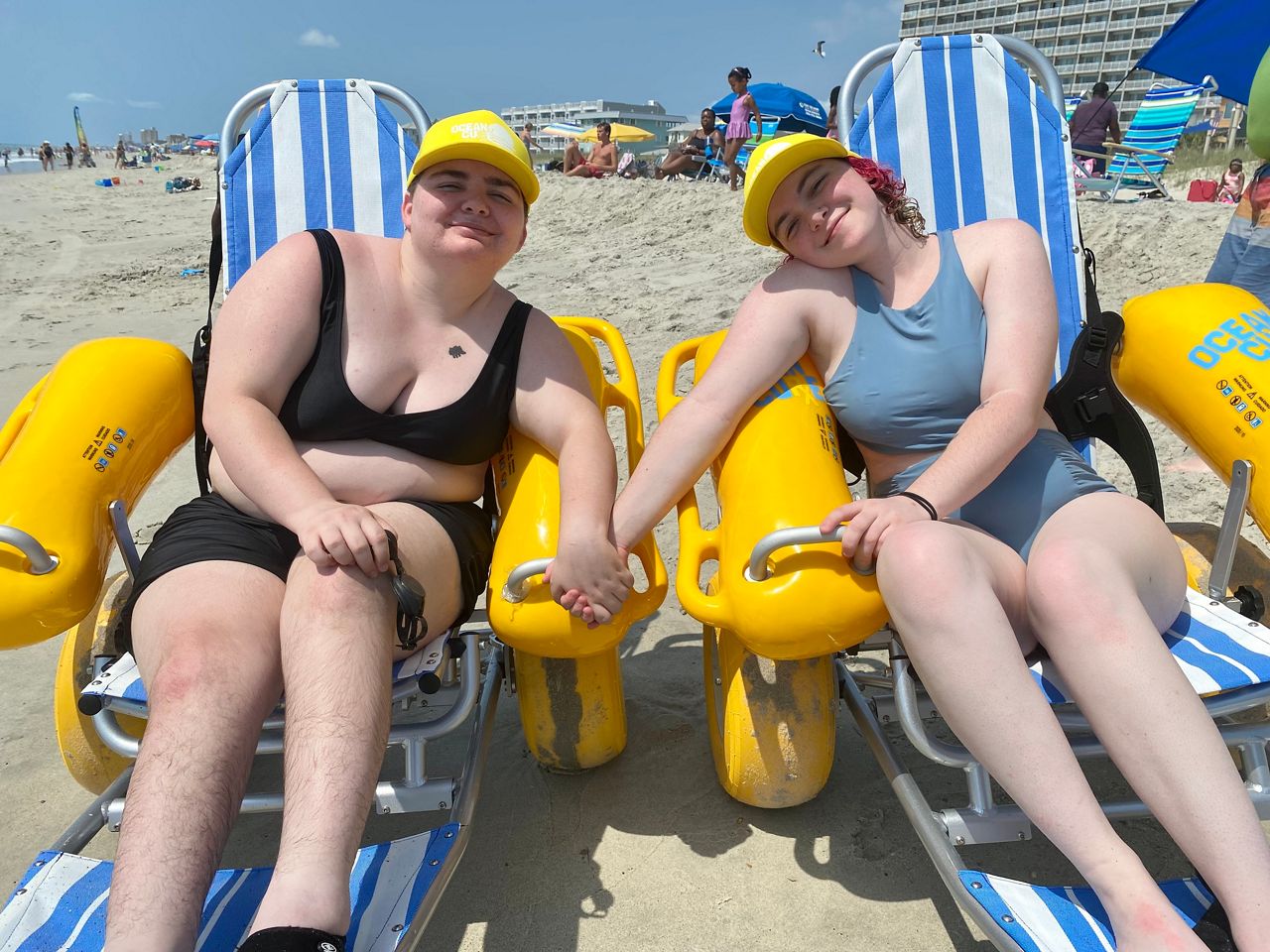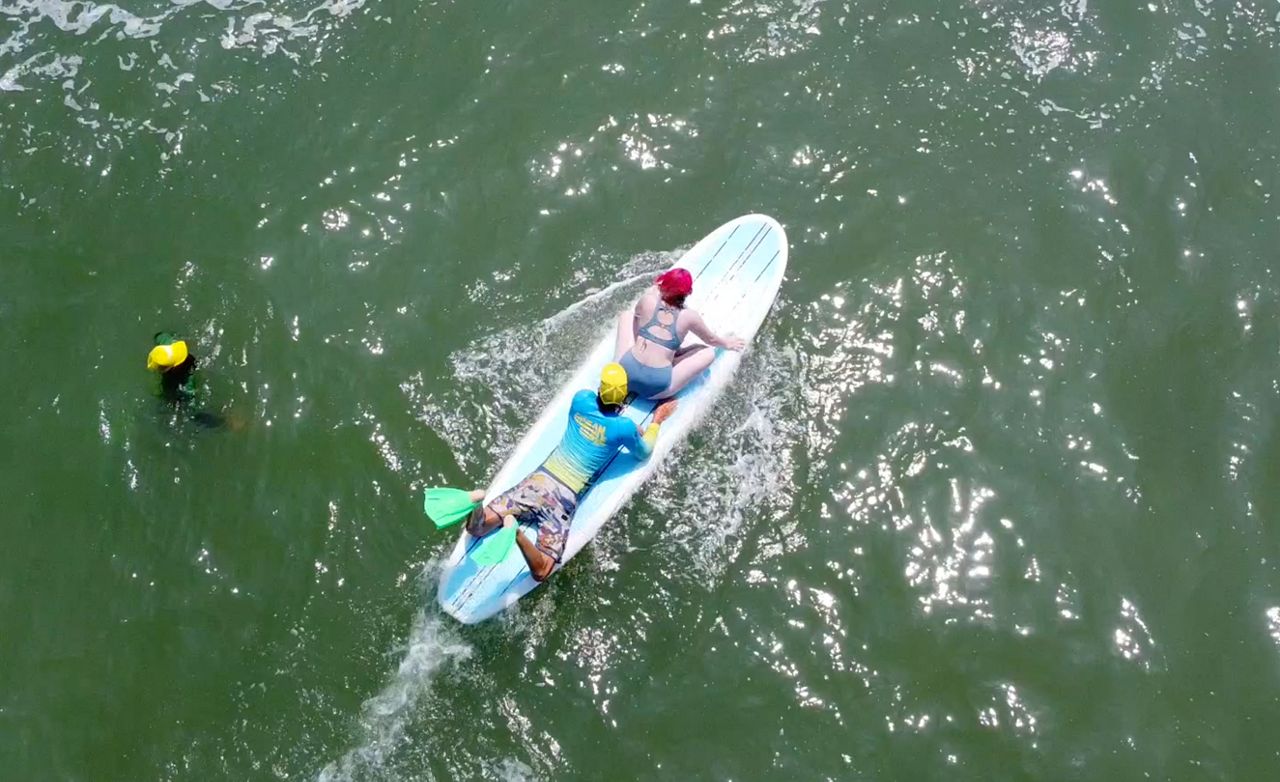WILMINGTON, N.C. — Summer is the time when many of us head to the coast, but the beach isn't something everyone gets to experience. Two friends who just learned how to surf believe there are more ways to healing than through a hospital.
If you happen to visit Carolina Beach, you might catch a glimpse of surfers in the water with blue and yellow wetsuits. They're from Ocean Cure – an organization dedicated to making the impossible possible.
“I think people forget how important quality of life is and being able to do things like go to the beach with your family,” Jace Gunther, a first-time adaptive surfer, said. “It's important to have autonomy and be able to do this, and it just brings so much joy to people.”

A car accident in January left Gunther paralyzed from the waist down, feeling like a reset button on life. Regardless of mobility, Gunther is still enjoying this summer to the fullest thanks to the helping hands of Ocean Cure, which set out to prove that although movement may have been lost, hope has not been lost with it.
“Knowing other people who are disabled makes me feel less disabled and more whole,” Gunther said. “They get me, they get what I'm going through and situations that are frustrating.”
Kyla Greenhut grew up on the beach and has a natural love of the water, but a genetic disorder led to the development of tethered cord syndrome, which caused her spinal cord to break. She now uses a wheelchair.
“I actually didn't know what was wrong with me until October,” Greenhut said. “I was becoming paralyzed and we had no clue why and it was absolutely terrifying ... I had a surgery to try to correct it and the surgery actually ended up making things worse. I was only partially paralyzed before the surgery, but the surgery completed my injury.”
Gunther, her new best friend, managed to put into words the devastation that comes with that loss.

“You cry a lot and you mourn lost opportunities and then you realize that your life isn't over, and there's so much more out there,” Gunther said.
For both of them, riding the waves felt like freedom — a rare taste of life with no wheels attached. Not only is it an escape from reality, but it's conquering something they never dreamed would be possible again.
“My body is very heavy with my dead weight of legs, and it feels freeing to be able to move without having to pull myself or something,” Greenhut said.
Greenhut now wants to work with younger kids with disabilities to show them a diagnosis does not define you. And just six months into the injury, Gunther is exploring more opportunities with organizations like Ocean Cure that bring some life back into their limbs.
“I didn't pay attention at all to how it would've been for someone in a wheelchair,” Gunther said. “I just thought about me, and I think that's a really normal thing ... try to pay attention and try to think about not just yourself, but a different perspective.”




